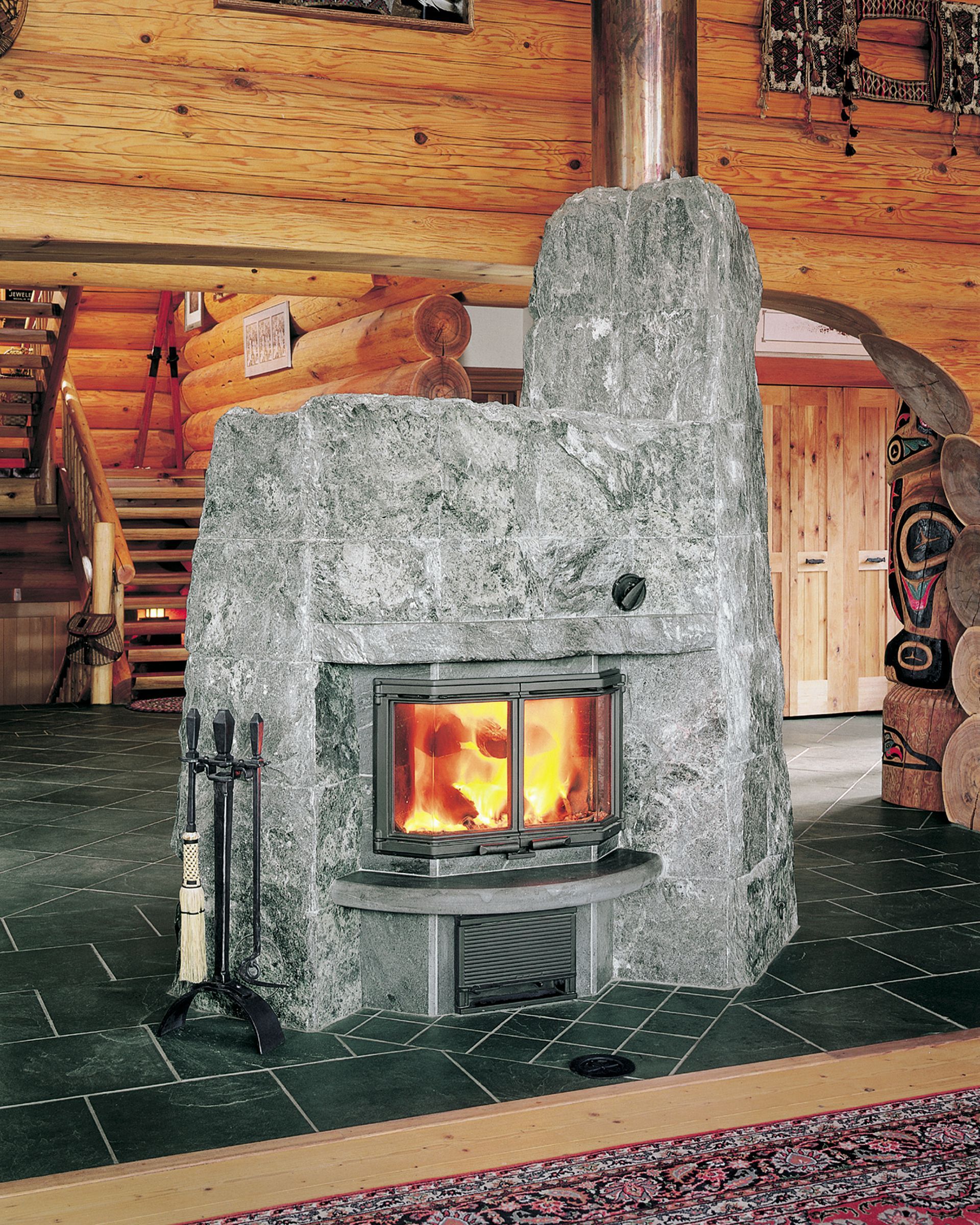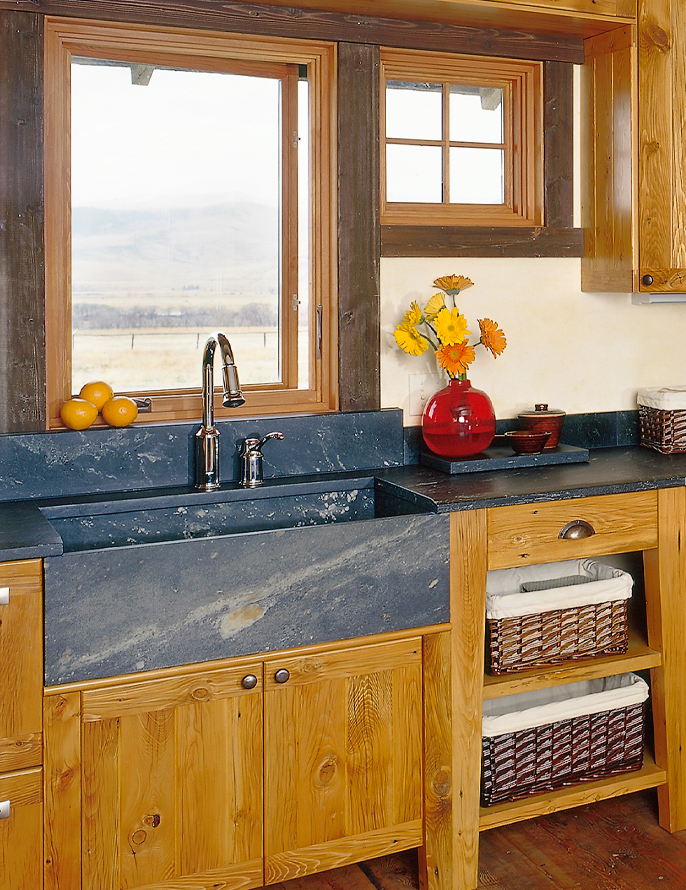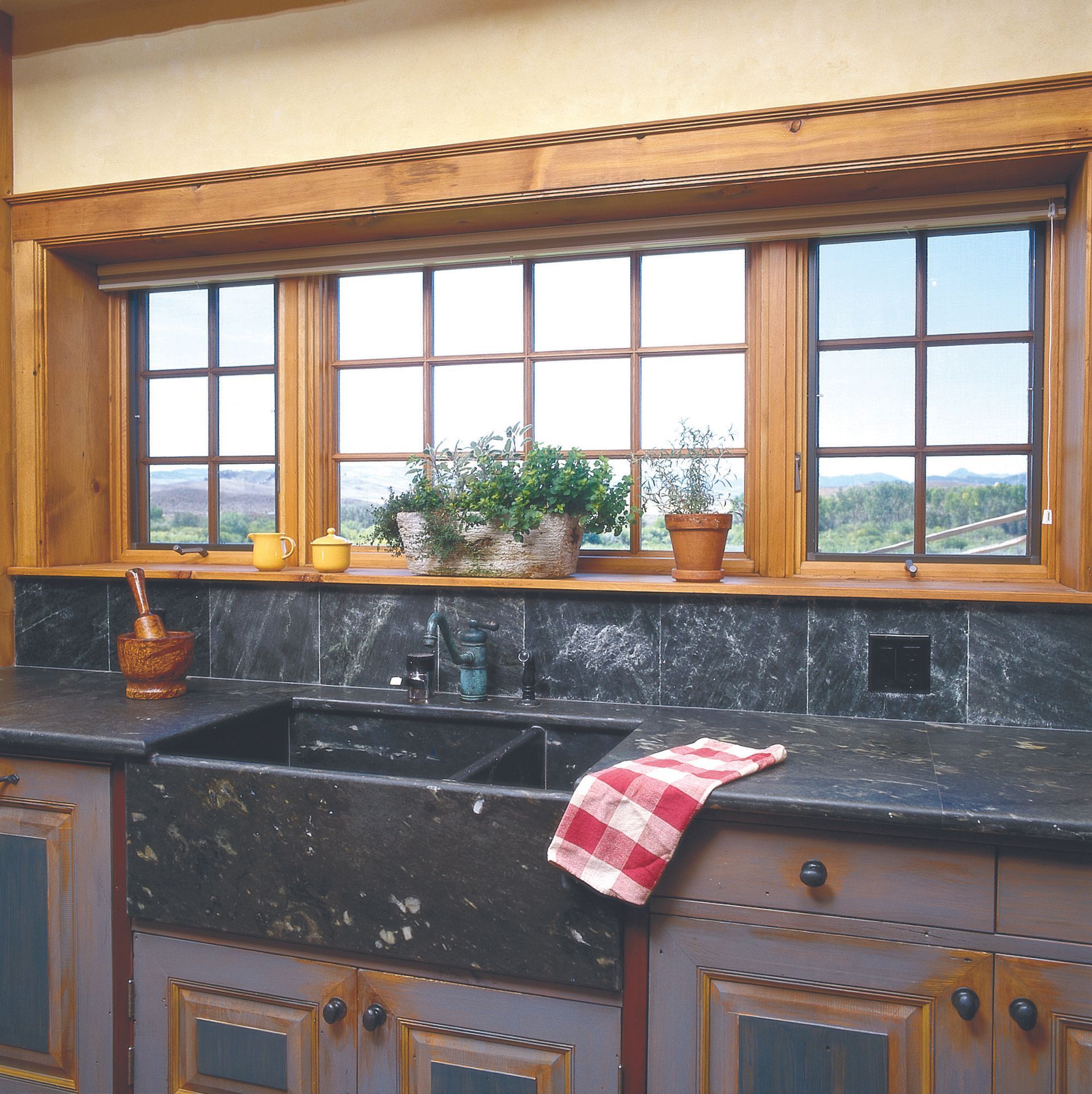The Incredible Soapstone
Direct from Nature
Soapstone is a natural stone that is quarried from below the Earth's surface. The primary components of soapstone include magnesite, chlorite, dolomite and talc. Soapstone can have varying amounts of these components depending upon the location it is found in. It is naturally antibacterial and stain resistant. There are no sealers or chemicals required to protect or clean it, which allows for a safer and greener home. The talc in soapstone gives it the 'soft' feeling, much like rubbing a piece of dry soap. Consequently, that is how the name 'soapstone' was derived.
PHOTO / Tulikivi Boulder Model.
Custom designed for each customer.

Characteristics
While soapstone is soft to the touch and is easy to cut & shape, it is also very dense (more dense than granite) and nonporous. Scratches are inevitable but can be easily removed by sanding away the blemish with fine sandpaper. Large blemishes virtually disappear by patching with a soapstone paste mixture, sanding, and finishing. Honed finishes are most popular with soapstone which provide a matte look and velvet-like touch. Customers may also choose a brushed finish which creates a smooth but textured feel with ridges and veins.
PHOTO / Custom-made soapstone sink, countertop and backsplash.

Heat Retention
Soapstone has long been known for its ability to retain heat, which is why it is so commonly used in pizza ovens and masonry heaters. It is able to withstand direct flames indefinitely unlike many other stones.
PHOTO / Tulikivi model TTU2200.

Soapstone Care
Since soapstone is nonporous; it can resist red wine, lemon juice, and even acids or alkalis. Countertops are often treated with mineral oil or wax which darkens the stone. Over time the countertops will develop a rich, satiny texture. If the soapstone surface becomes discolored or stained from a spill it can be scrubbed or lightly sanded off. Customers may wish to leave their soapstone untreated. However, oils from kitchen activities and even oil from hands can turn untreated soapstone splotchy. Although the oil does not soak into the stone, the most common treatment to prevent splotching is by periodically applying dry wax, bee's oil, or mineral oil.
PHOTO / Soapstone countertops, sink, and backsplash.


